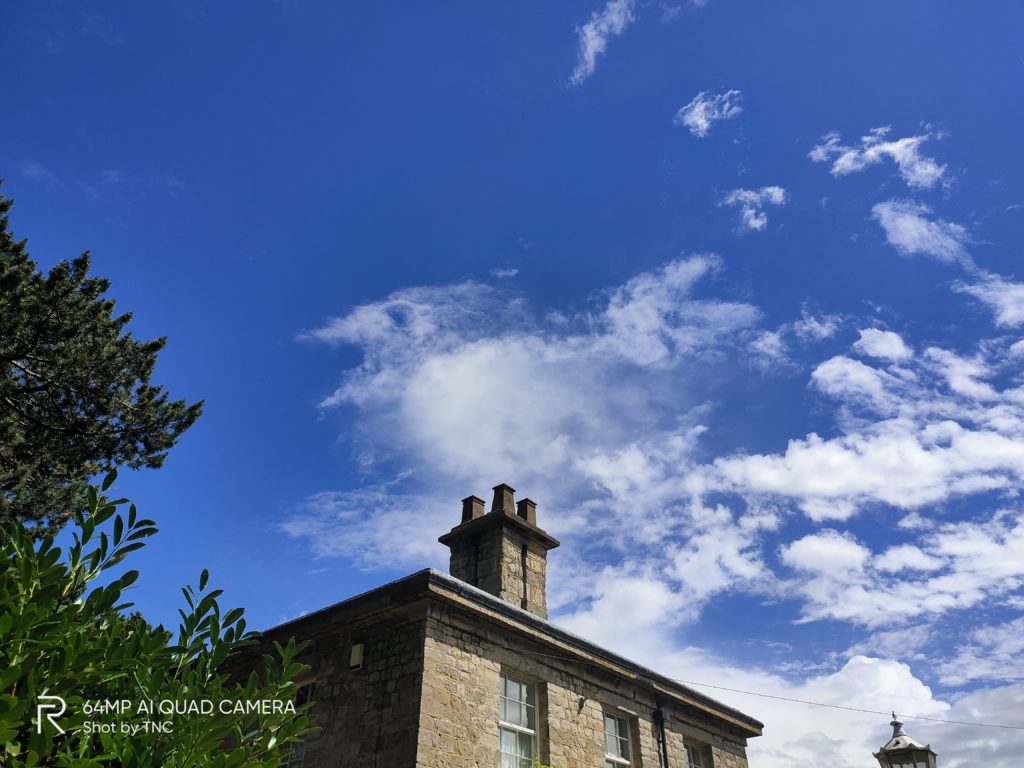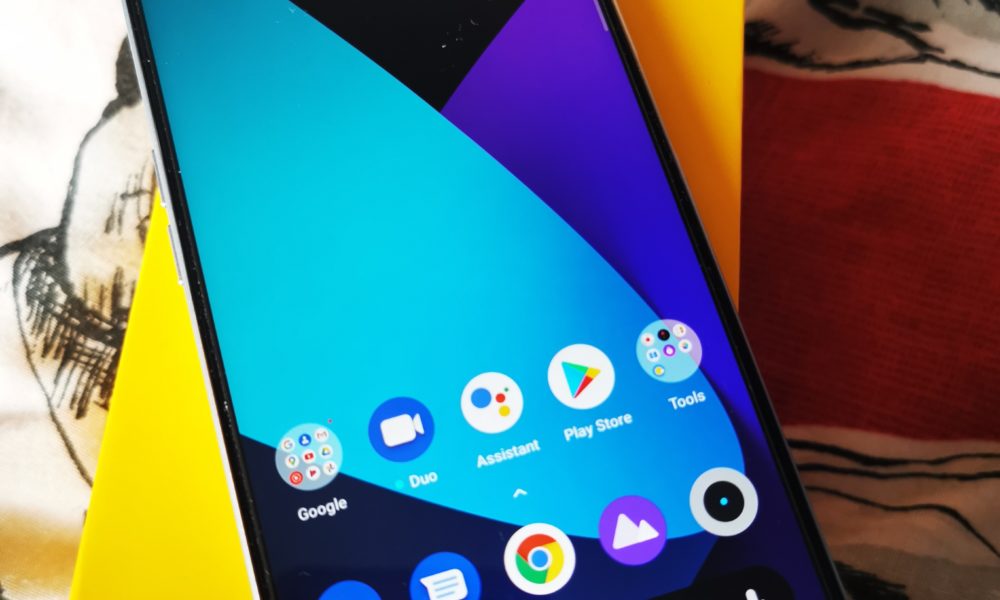
Could the realme X3 Superzoom, be the smartphone for you for 2020, let’s start then, the matte-frost white colour (Arctic White) looks very unique. It is not reflective like most shiny finishes and hence, should look great in most scenarios. In our eyes, this finish beats the glossy, pearl white finish that many phones go for.
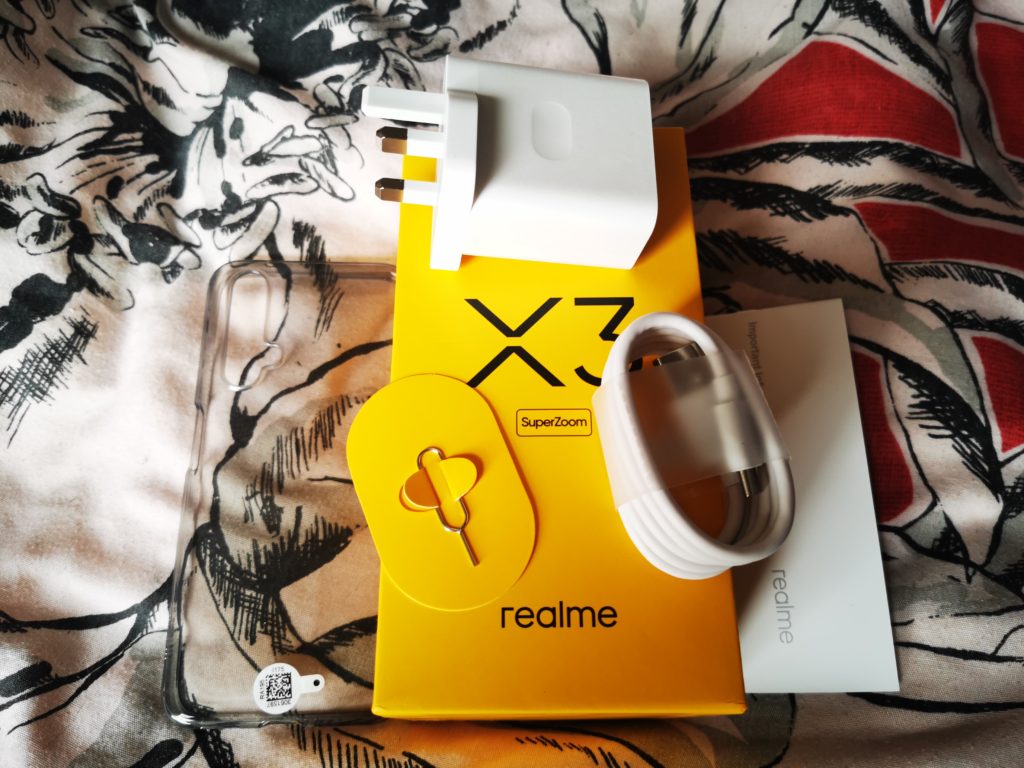
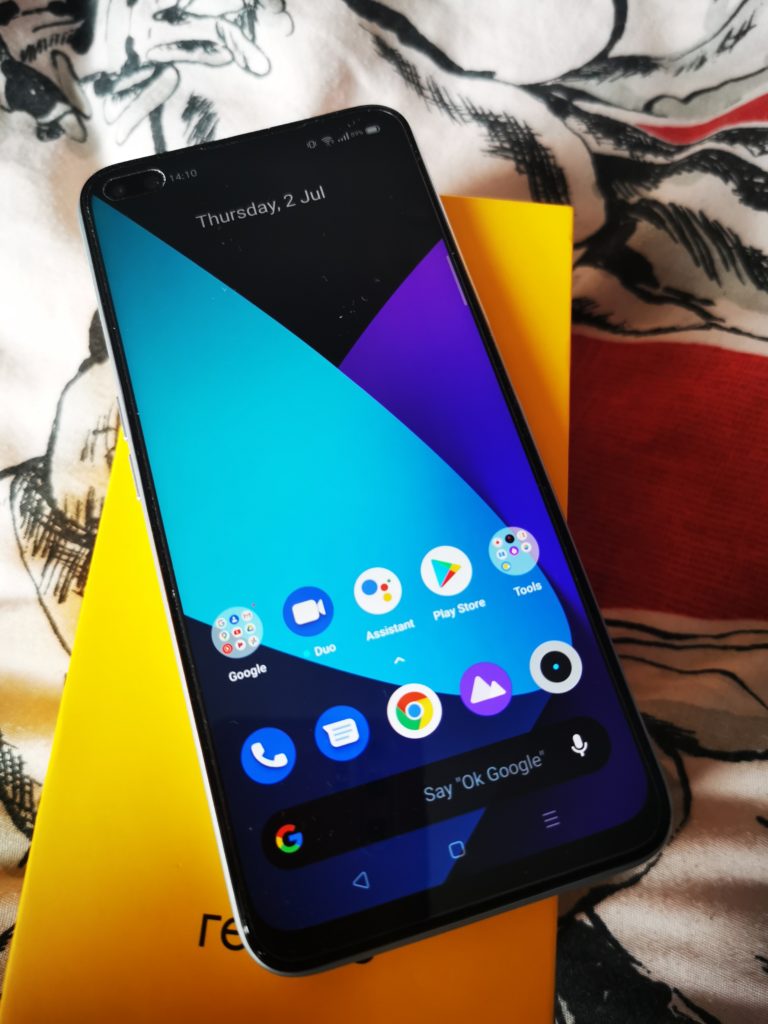
Display
The Realme X3 SuperZoom features a 6.6-inch screen along with a dual-front camera setup in a pill-shaped cut out on the top left. The phone also comes with thin bezels on the sides with a slightly chubby chin on the bottom. For a better comparison, it comes with a 90.5 per cent screen-to-body ratio.
The smoothness of 120Hz is immediately evident throughout the interface. Coupled with the Snapdragon 855+ SoC, the screen offers an impressive user experience. The smoothness is not just limited to the transitions. Instead, we observed quick app launch times the resulted in a snappy experience.
Realme also outlined that the panel features a dynamic refresh rate. The software also features an “Auto select” mode for the refresh rate beyond the “60Hz” and “120Hz” options. This lets the phone switch between 60Hz and 120Hz on its own based on the support of the apps you’re running.


Camera
The Realme X3 SuperZoom features a quad-camera module on the back. This setup includes a 64-megapixel main camera, an 8-megapixel ultra-wide sensor, a 2-megapixel macro sensor, and the highlight of the phone, an 8-megapixel telephoto periscope lens. The square-shaped periscope lens helps the phone zoom 60x. Further, the phone also offers OIS (Optical Image Stabilization) on the sensor. The OIS minimizes shake while taking zoomed-in photos. We also noticed that the 60X zoom mode is integrated with the regular camera mode, so switching between the main lens and the periscope lens is quick and seamless.
The rear module a total of four cameras, which have the following characteristics:
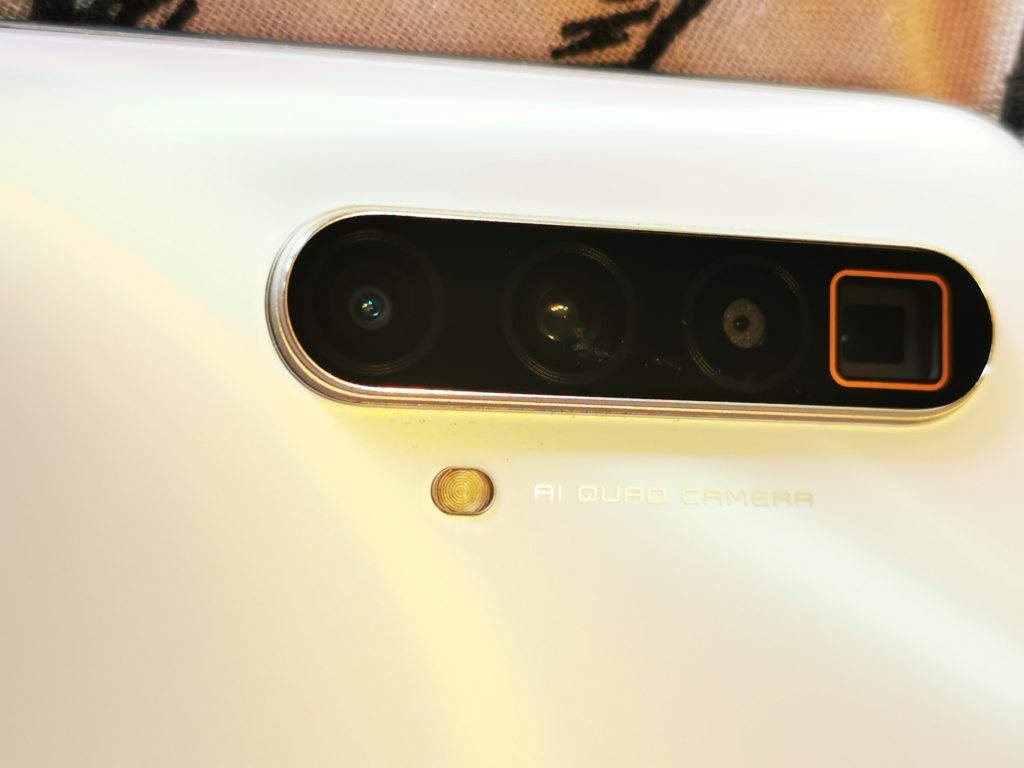
- 64-megapixel main sensor with an f / 1.8 aperture lens.
- 8-megapixel sensor with a telephoto lens with f / 3.4 aperture and optical image stabilization. 5x optical zoom (equivalent to 124 millimetres) and up to 60x hybrids.
- 8-megapixel sensor with a wide-angle lens with 119º field of view and f / 2.3 aperture.
- 2-megapixel sensor with a macro lens with f / 2.4 aperture.
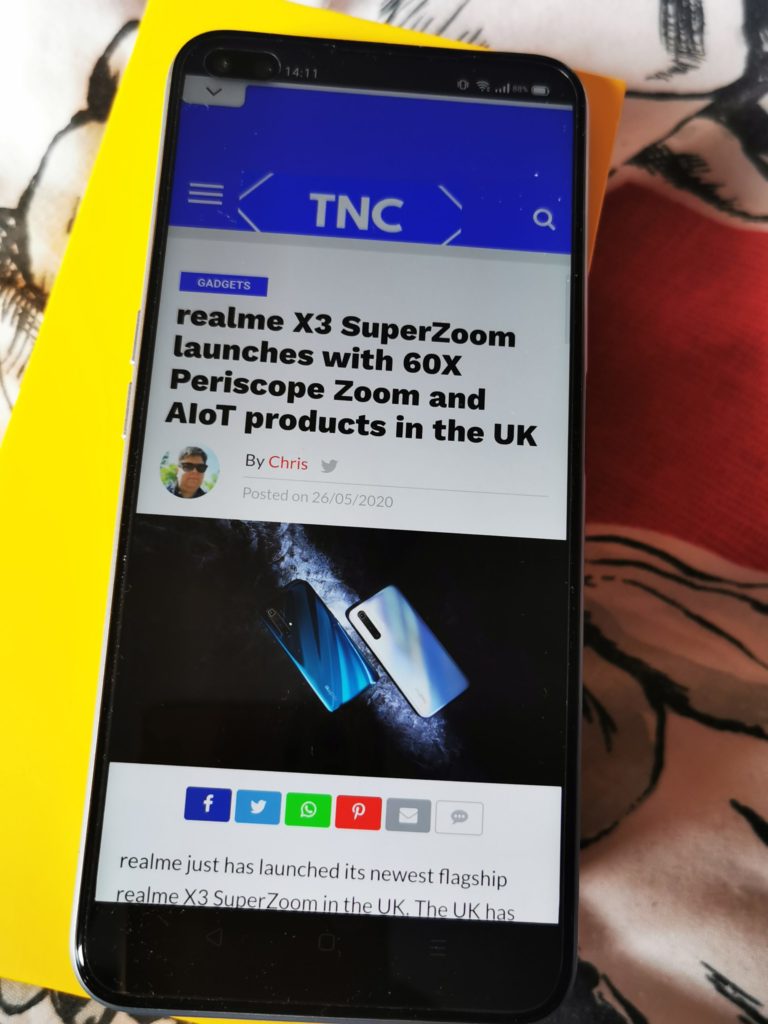
Realme has also brought a number of software-backed features to make the photography experience even better. This includes a couple of night modes and a new Starry Mode that should help take awesome night shots of the stars.
Camera Samples
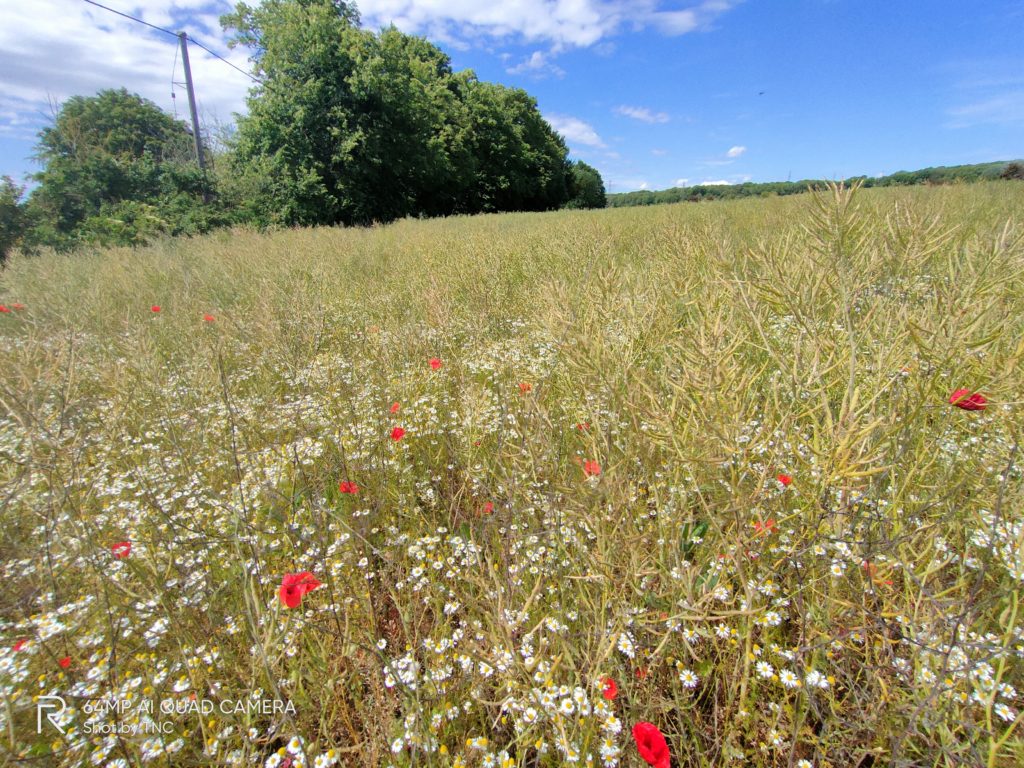



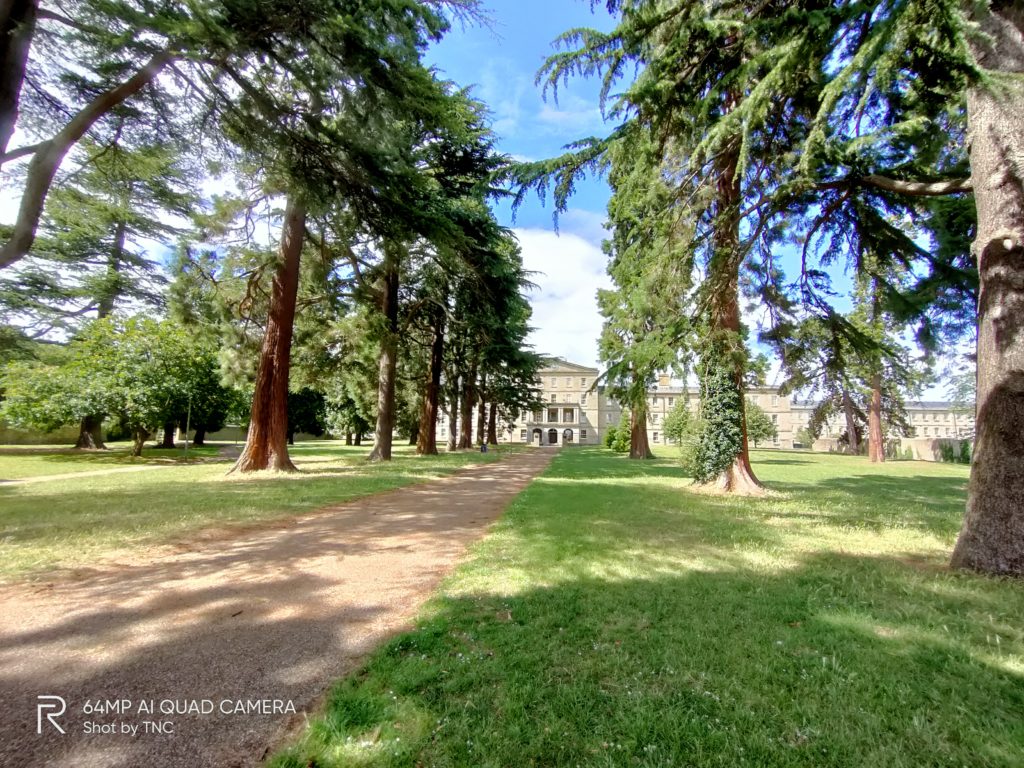
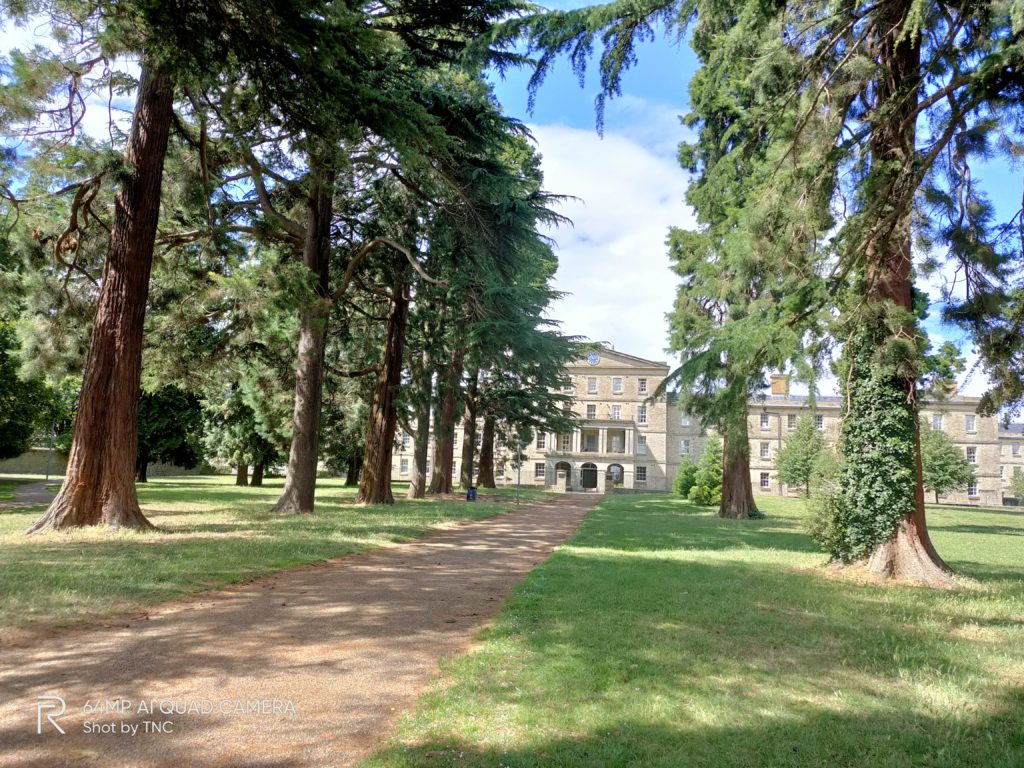
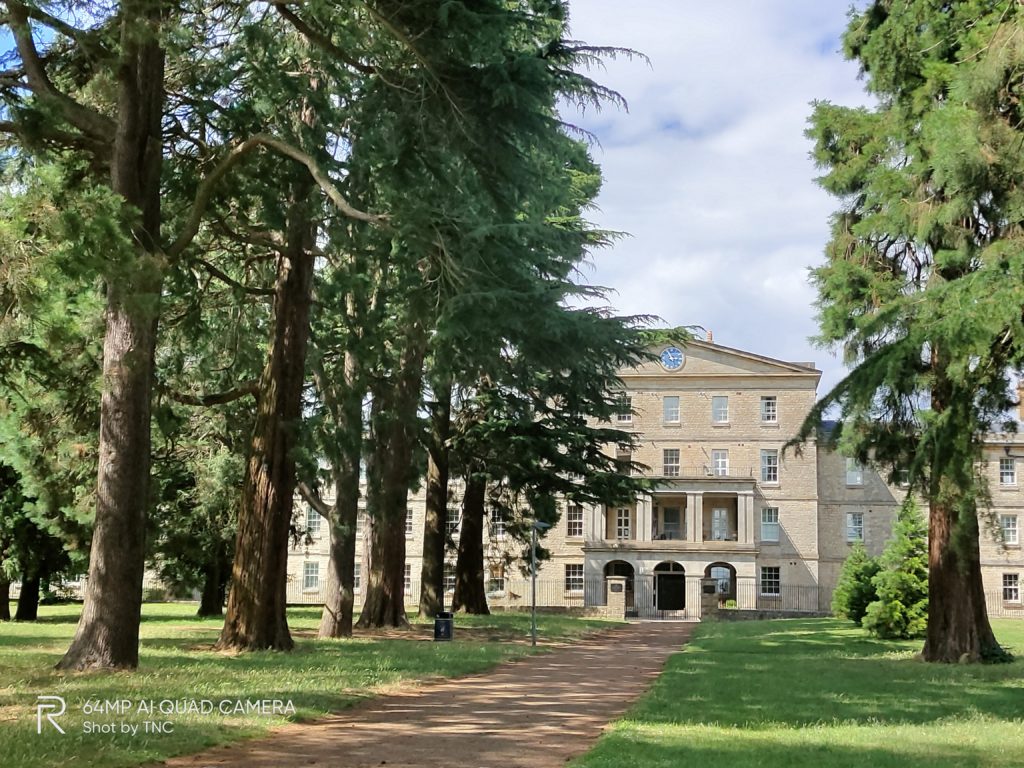
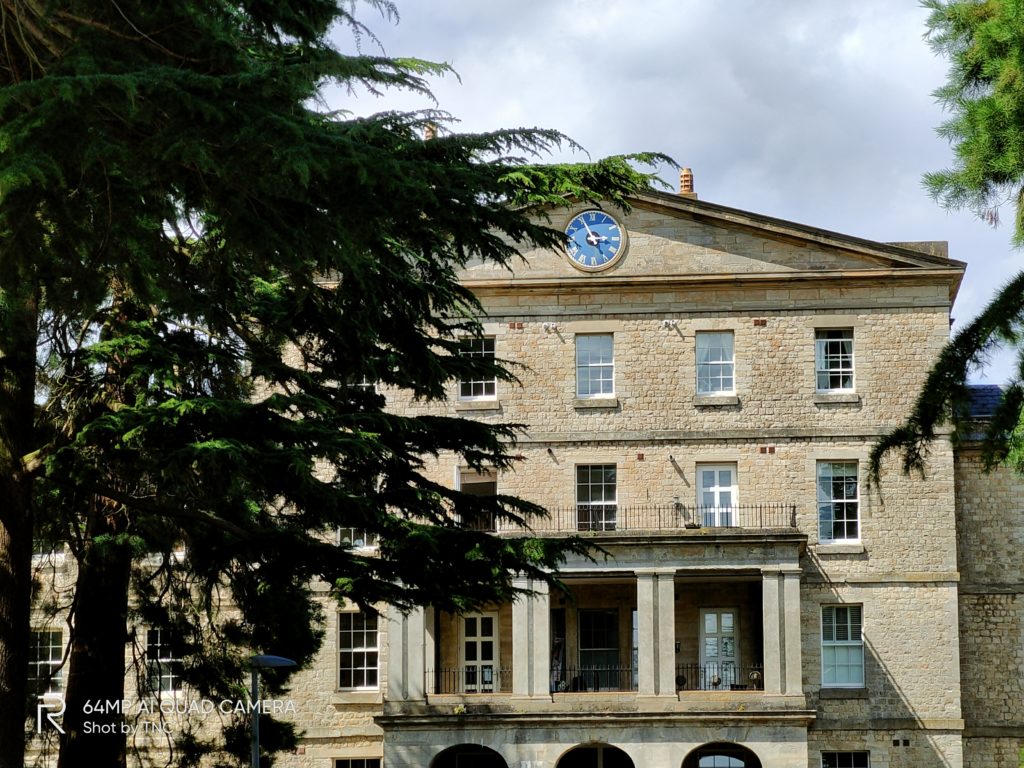
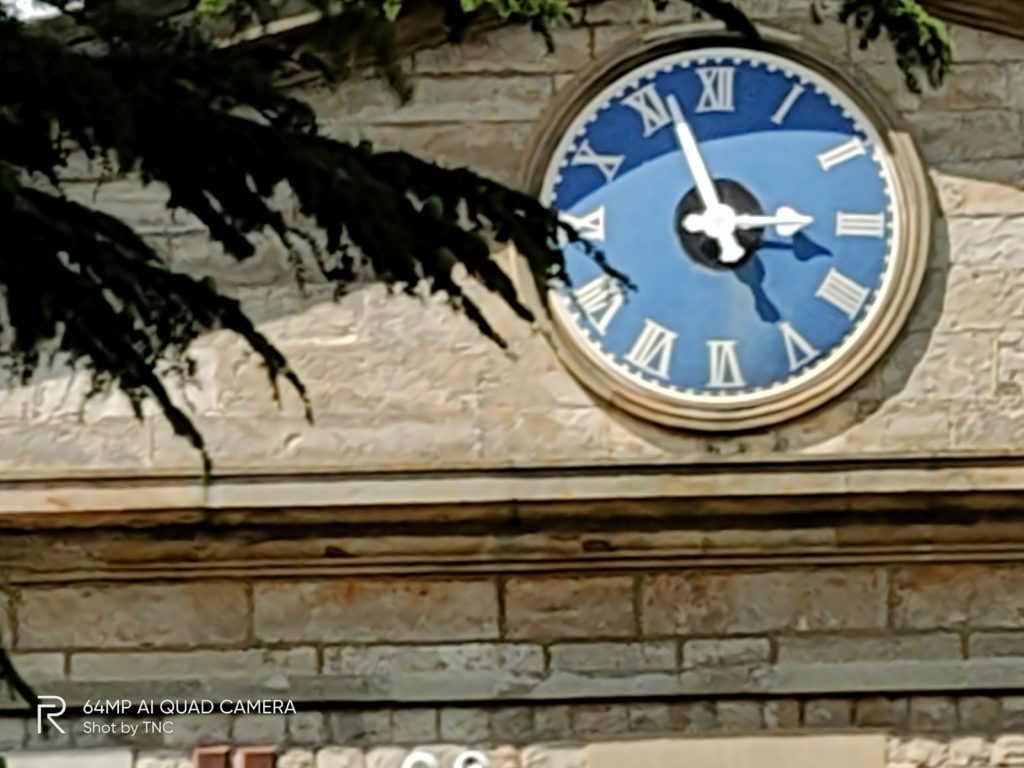
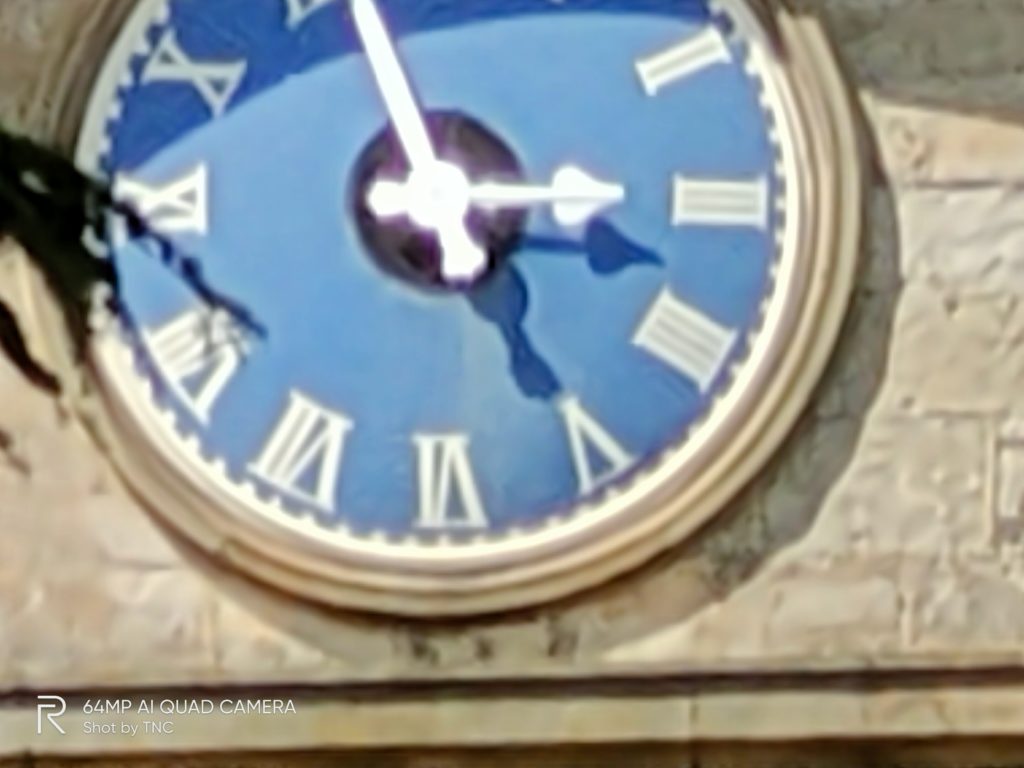
Specs
| REALME X3 SUPERZOOM | |
|---|---|
| SCREEN | IPS 6.6 inch FullHD + Resolution of 2,400 x 1,080 pixels Corning Gorilla Glass 5 Refresh 120 Hz |
| PROCESSOR | Snapdragon 855+ GPU Adreno 640 |
| RAM | 12 GB LPDDR4x |
| STORAGE | 128GB UFS 3.0 |
| FRONTAL CAMERA | Dual: 32 megapixel f / 2.5, 80.4º wide 8 megapixel, f / 2.2, 105º wide |
| REAR CAMERAS | Quad: 64-megapixel, f / 1.8, 78.6º 8-megapixel wide-angle, f / 2.3, 119º 8-megapixel, f / 3.4, OIS, 5X 2-megapixel macro zoom, f / 2.4 Flash LED |
| BATTERY | 4,200 mAh Fast Charge Dart Flash 30W |
| OPERATING SYSTEM | Android 10 Realme UI |
| CONNECTIVITY | 4G WiFi 5 Bluetooth 5.0 USB Type-C GPS Dual NFC |
| OTHERS | Fingerprint reader on the side High-resolution Dolby Atmos sound Liquid Cooling Technology 3.0 cooling system |
| DIMENSIONS AND WEIGHT | 163.8 x 75.8 x 8.9 mm 202 grams |
| PRICE | £479 (realme/Amazon UK) |
The volume buttons are more or less in the middle and on the opposite side to the power, which is hidden in the fingerprint reader that sits on the right side.
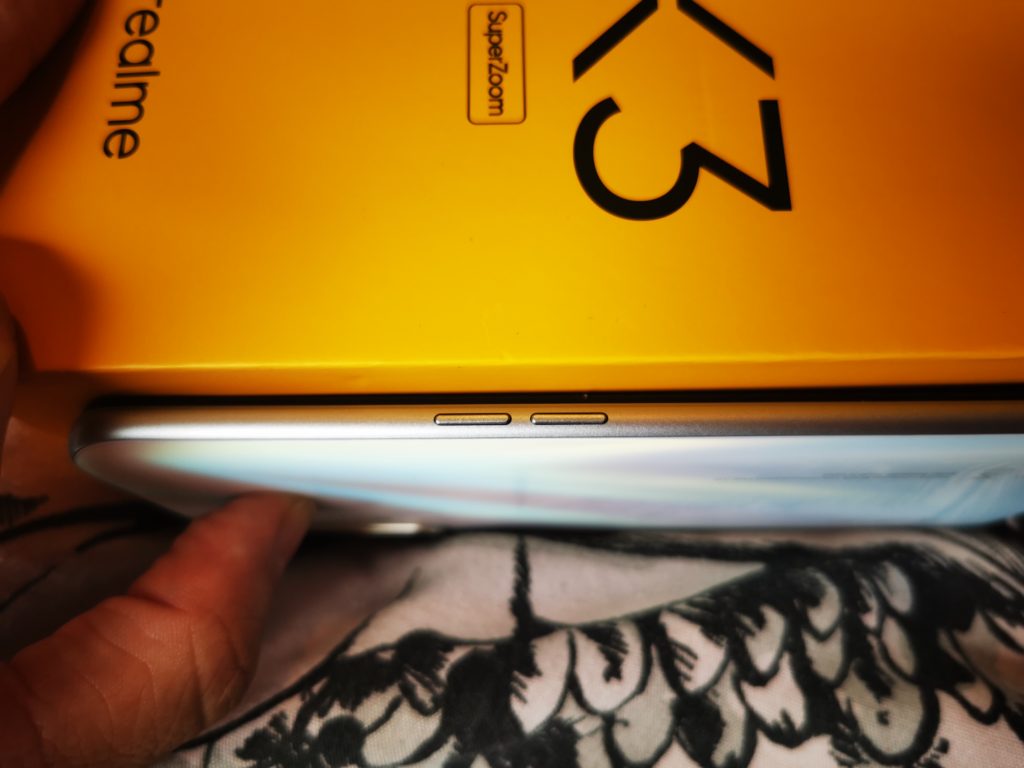
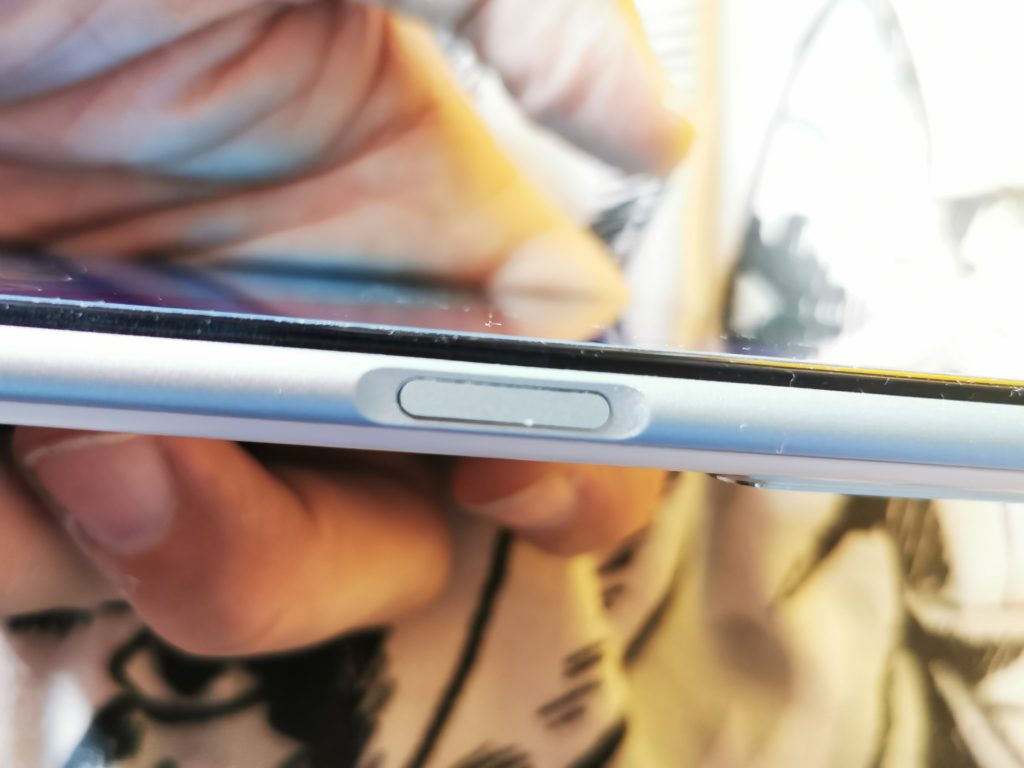
The position of all of them is accessible and comfortable, without leaving us far when it comes to posing the fingerprints by holding it with the right not with the left.
With the camera module at the back, it is in charge of grouping the four cameras that we will later describe. It stands out quite a bit, not so much to impact the eye but to notice when using it supported on the table if we have not put a case to match the back: depending on how we give it it will be able to balance a little, although it is not a “rocking effect” too marked.
Having Gorilla Glass 5 on the front and built-in glass and aluminium talking about the back and edges. To fit the front cameras they have opted for a double perforation on the screen, which as we will see now is not too discreet. The rest of the edges are relatively thin with the exception of the bottom, somewhat thicker as we usually see on most phones.
What we have finally seen is the effect of the OSIE Vision Effect. Testing in apps like YouTube we see that what is achieved are more vivid colours and above all give a plus of contrast that the truth is that it is pleasant and improves the quality of the video, especially if there are elements with bright colours (for example, nature videos).
The maximum brightness of the panel (450 nits) is enough for the contents to be seen well when the light is most directly affected, but what would be useful is that the automatic brightness can be adjusted a little more when being in environments with medium, light or low since there is something high and this would save energy. The correction can be done manually and quickly, so it is not annoying either.
As for the 120 hertz, you will notice it in the scrolling, going much more fluid. In fact, it is noticeable there much more than in games, partly because many of those that support 120 Hz with a dynamic that does not make it easier to notice. But in any case, it compensates leaving it activated with 120 Hz even taking into account the energy consumption that we will see later.
Realme UI 1.0 is still the newest version of the brand’s own personalization layer that sits on Android 10. A software that is characterized by being quite invasive on an aesthetic level but leaving in exchange many customization options that start from the same first system load.
The two front camera’s we see that the main one incorporates a 32-megapixel Sony IMX 616 sensor with 80.4º field of view and f / 2.5 aperture, accompanied by a second 8-megapixel sensor with a wide-angle lens of 105º field of view and aperture f / 2.2.
Camera app
The Realme app is complete and intuitive, adapting quite well to all those parts that we just mentioned. It has the typical navigation by tabs that we usually see in most, with one corresponding to each mode except those that go to the “More” tab, among which we will see those of time-lapse or slow-motion video, Pro mode or Ultra macro between others.
With the “AI” button, appears both in automatic shooting and in 64-megapixel shooting. The lens change can be done in the traditional way in the automatic interface such as selecting the lens in Pro mode, which also allows shooting in RAW.
HDR is available automatically or manually in quick access, such as AI mode, filters, and flash. In the settings, you can change the resolution of the video, but both HDR and ultra-stabilization mode are also available in direct access without having to go to another screen
Rear cameras
By day and in abundant light we see a correct performance in terms of colourimetry and detail, tending to the natural. Normally the detail is acceptable, although it will not be unusual to see some noise when enlarging and we will see that the sharpness is greater pulling HDR or the higher resolution.
For me, the realme X3 Superzoom is really good value for money its a shame that realme didn’t bring out the 8GB 128GB version for the UK that’s available in other markets.
For
- Always fluid, and more with the refresh rate at 120 hertz.
- Realme UI is much more stable and adds many options for customizing the experience.
- Although the overall performance is not clearly above many rivals, the combination of cameras is very complete and so is the app.
Against
- A pity not to opt for a 2K OLED to complete the good experience with the screen at 120 Hz.
- Not having a stereo or audio jack (with that thickness) seems like a missed opportunity.
- We expected more from the video and the wide-angle.
TNC Score for the realme X3 superzoom is 4.2/5

